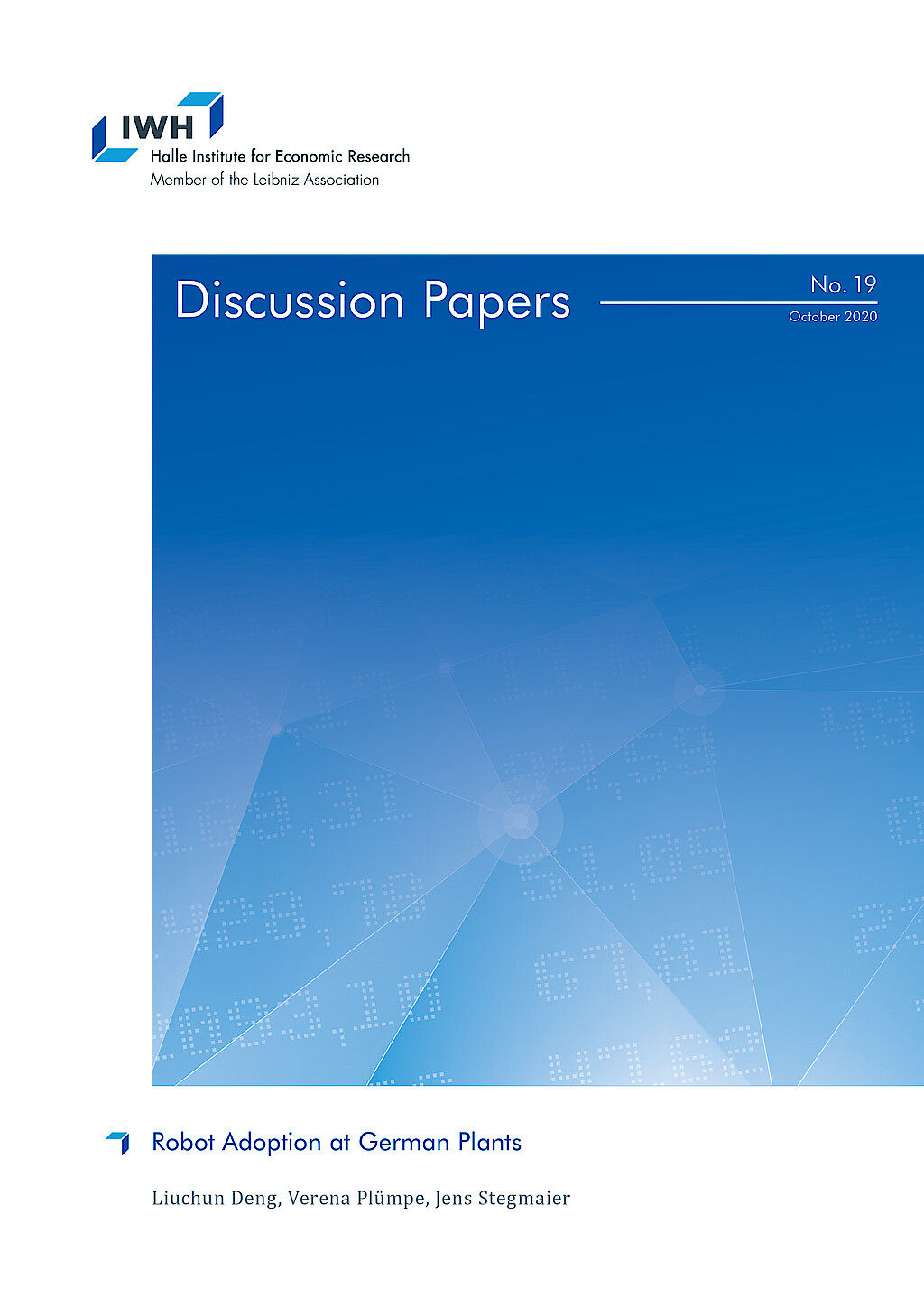
Robot Adoption at German Plants
Using a newly collected dataset of robot use at the plant level from 2014 to 2018, we provide the first microscopic portrait of robotisation in Germany and study the potential determinants of robot adoption. Our descriptive analysis uncovers five stylised facts concerning both extensive and, perhaps more importantly, intensive margin of plant-level robot use: (1) Robot use is relatively rare with only 1.55% German plants using robots in 2018. (2) The distribution of robots is highly skewed. (3) New robot adopters contribute substantially to the recent robotisation. (4) Robot users are exceptional along several dimensions of plant-level characteristics. (5) Heterogeneity in robot types matters. Our regression results further suggest plant size, low-skilled labour share, and exporter status to have strong and positive effect on future probability of robot adoption. Manufacturing plants impacted by the introduction of minimum wage in 2015 are also more likely to adopt robots. However, controlling for plant size, we find that plant-level productivity has no, if not negative, impact on robot adoption.





